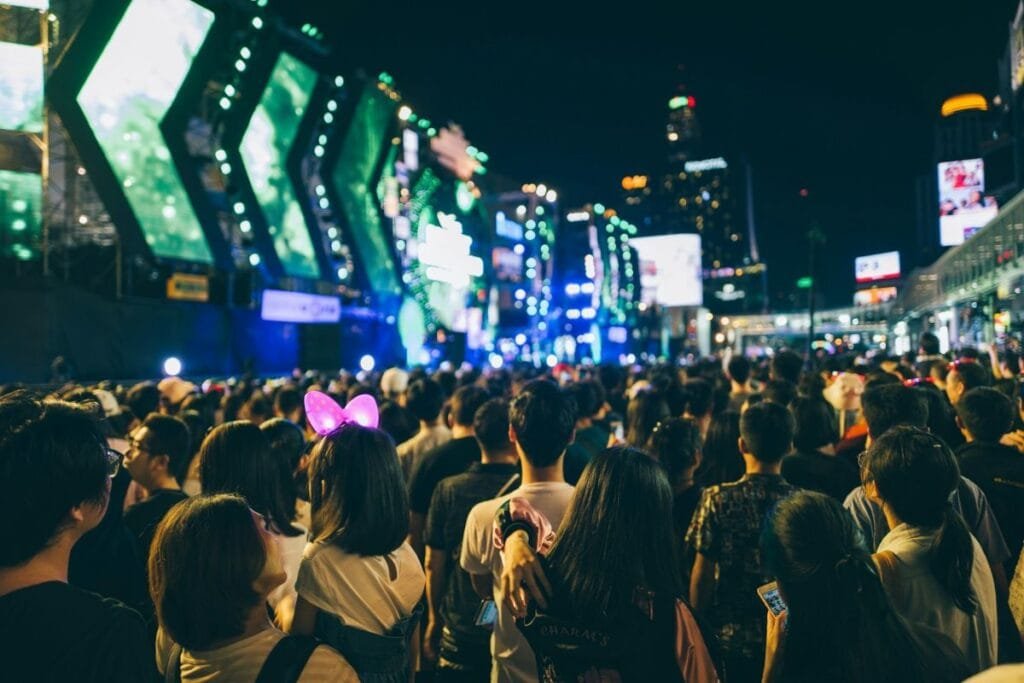
Cities are increasingly realising how important strong infrastructure is in organising major events properly. As metropolitan areas prepare for these meetings, significant expenditures are being made to improve transit networks, increase hotel choices, and apply cutting-edge security measures. These improvements help ensure a flawless attendance flow and enhance the whole experience using sustainability projects and cultural activities. By concentrating on these important areas, cities want to create a friendly climate that supports long-term urban resilience and the immediate demands of event attendees.
Infrastructure upgrades
Mass participation events such as marathons, music festivals, and major athletic contests have grown in popularity in cities, attracting thousands—or maybe millions—of attendees and onlookers. As guests often come from far away, stay in hotels, eat at nearby eateries, and interact with local culture, these events bring major economic advantages for tourism, local businesses, and city branding. Cities are, therefore, quite encouraged to organise these events, provide trained brand ambassadors, temporary event managers etc, since they realise they could boost community pride and help revive the economy.
Urban centres are redesigning their infrastructure to assist these mass participation activities. As communities try to guarantee visitors a flawless experience, the need for effective transit, crowd control, and safety precautions becomes increasingly important. Cities are developing plans to handle the flood of people, ranging from improving public transportation systems to adding temporary event-specific paths and shuttle services. These improvements strengthen the city’s standing as a dependable site for major events by laying the groundwork for the next meetings, transcending handling a single event.
Transportation improvements
Cities clearly show efforts to improve mobility since they prioritise effective transit options for big events. This covers implementing special shuttle services and route optimisation to help ease traffic congestion. Expanding bicycle lanes and pedestrian paths also supports environmentally friendly transportation choices. Real-time information technologies are also being used to inform participants about possible delays and transit plans, guaranteeing smooth travel to and from sites.
Accommodation expansion
Urban areas are experiencing an explosion in housing alternatives to satisfy the growing need for space during big events. New hotels are being constructed, while current buildings are being renovated to improve their capacity and offerings. Towns are also adopting alternative lodging options, such as pop-up hotels and short-term rentals, to provide guests with different choices. This growth meets the influx of people and strengthens the local economy by generating jobs and supporting affiliated companies.
Security measures
For cities organising big events, ensuring the safety of spectators has taken the front stage. Advanced surveillance systems—CCTV and drone technology—are used to monitor crowds properly. Working with local law enforcement and emergency agencies is vital and helps create thorough security measures for certain events. Training courses for employees and volunteers are also being carried out to improve reaction and preparedness, creating a safe environment free from distractions and enabling participants to concentrate on enjoying the event.
Cultural programming
Cities are increasingly creating varied cultural experiences to enhance important events and include visitors. This covers the planning of local celebrations highlighting area talent and legacy as well as art projects and events. Urban regions generate dynamic environments that go beyond the primary gathering by working with artists and cultural institutions, promoting exploration and interaction. By stressing distinctive cultural offers, such programming improves tourists’ whole experience, promotes town pride, and supports local businesses.
Sustainability initiatives
Cities’ attitudes to big events are changing as environmental stewardship gains more weight. Programs aimed at waste reduction and recycling promotion help to lessen the environmental impact of events. While pushing guests to use public transportation or carpooling, several metropolitan regions also prioritise sustainable materials for use in infrastructure and catering. Incorporating green ideas into event design helps cities save the earth and motivates guests to lead more environmentally friendly daily lives.
Economic impact
Major events attract people who support nearby companies and services, functioning as major economic development drivers in metropolitan regions. Notable increases in patronage of hotels, restaurants, and retail stores often translate into higher income and employment growth. Moreover, improved exposure and reputation help cities since they inspire the next travel and investment. The flood of people also drives demand for regional goods and experiences, creating a lively market beyond the event itself.
Apart from improving the immediate experience for participants, the extensive infrastructure improvements and strategic projects carried out by cities to fit major events help to build long-term urban resilience and economic vibrancy. Urban regions are becoming vibrant hubs that draw tourists and boost local businesses by prioritising transport enhancements, increasing the range of lodging choices, putting strong security measures in place, selecting interesting cultural events, and supporting sustainability projects. These initiatives show a dedication to organising great events and encourage sustainable practices and community pride, enhancing the urban environment for both people living here and guests.







